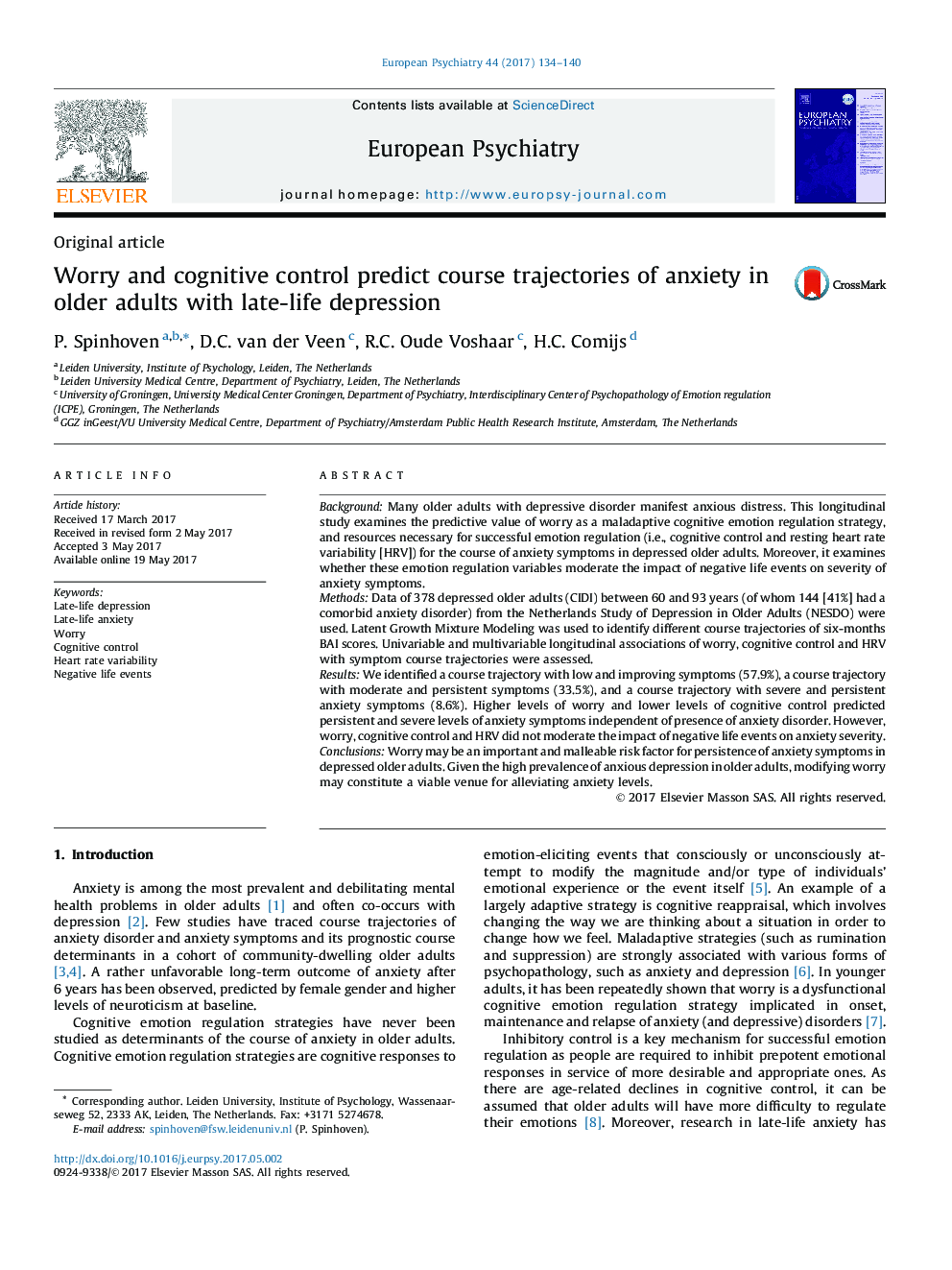| کد مقاله | کد نشریه | سال انتشار | مقاله انگلیسی | نسخه تمام متن |
|---|---|---|---|---|
| 5721400 | 1608046 | 2017 | 7 صفحه PDF | دانلود رایگان |
BackgroundMany older adults with depressive disorder manifest anxious distress. This longitudinal study examines the predictive value of worry as a maladaptive cognitive emotion regulation strategy, and resources necessary for successful emotion regulation (i.e., cognitive control and resting heart rate variability [HRV]) for the course of anxiety symptoms in depressed older adults. Moreover, it examines whether these emotion regulation variables moderate the impact of negative life events on severity of anxiety symptoms.MethodsData of 378 depressed older adults (CIDI) between 60 and 93 years (of whom 144 [41%] had a comorbid anxiety disorder) from the Netherlands Study of Depression in Older Adults (NESDO) were used. Latent Growth Mixture Modeling was used to identify different course trajectories of six-months BAI scores. Univariable and multivariable longitudinal associations of worry, cognitive control and HRV with symptom course trajectories were assessed.ResultsWe identified a course trajectory with low and improving symptoms (57.9%), a course trajectory with moderate and persistent symptoms (33.5%), and a course trajectory with severe and persistent anxiety symptoms (8.6%). Higher levels of worry and lower levels of cognitive control predicted persistent and severe levels of anxiety symptoms independent of presence of anxiety disorder. However, worry, cognitive control and HRV did not moderate the impact of negative life events on anxiety severity.ConclusionsWorry may be an important and malleable risk factor for persistence of anxiety symptoms in depressed older adults. Given the high prevalence of anxious depression in older adults, modifying worry may constitute a viable venue for alleviating anxiety levels.
Journal: European Psychiatry - Volume 44, July 2017, Pages 134-140
